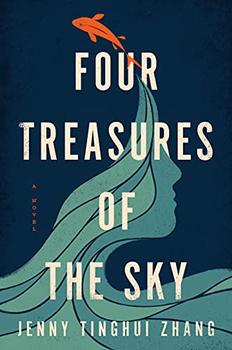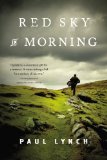Summary | Excerpt | Reading Guide | Reviews | Beyond the book | Read-Alikes | Genres & Themes | Author Bio

Take Me Home is a powerful story about friendship and love set against the stunning backdrop of 1880s Wyoming and based in the pages of history.
Like many classic stories, Brian Leung's novel begins with a journey home. Adele "Addie" Maine is returning to Dire, a Wyoming coal-mining town, forty years after the deadly events that nearly took her life and drove her away without a word to her husband.
Years earlier: Headed West to stay with her brother Tommy, a young and feisty Addie arrives in Wyoming having been convinced along the way that the Chinese who work alongside the white men in the small Wyoming town are half-man, half-beast - devious creatures to be wary of. When Tommy falters at homesteading, the siblings look to the coal mines and Addie comes into close contact with one Chinese man in particular, Wing Lee. The bond between the two is a mere spark at first, hampered by the reality for both that a friendship would be impossible, forbidden, even in a territory where almost everyone is an immigrant.
Together, Addie and Wing harbor a secret. Ultimately Addie must protect Wing's life and fight for what she knows is right, but she still can't find the answers to life's most important questions. It's only as a much older woman, returning to Dire to bid farewell to a friend from decades ago, that Addie comes face-to-face with the man she's certain tried to kill her, and at last confronts the surprises and losses that await at the end of a difficult journey.
Take Me Home is a searing, redemptive novel that explores justice in a time of violence, and the sweeping landscape between friendship and love.
Brian Leung's haunting, lyrical love story is a powerful parable about how someone's personal history can be superseded by the creative machinations of those involved in writing history... In the end, it seems that Leung is reminding us that the stories - both personal and national - that endure are not necessarily the whole truth but simply a version of the storyteller's truth...continued
Full Review
(532 words)
This review is available to non-members for a limited time. For full access,
become a member today.
(Reviewed by Donna Chavez).
During much of the second half of the 19th century, the Union Pacific Railroad (UP) was able to maintain a monopoly on coal production because it controlled the only means of transportation into the Western territories. Thus it owned and operated all the coalmines, fixed coal prices to its own benefit and was able to establish its own standards - or lack of - for employee treatment and compensation. In 1875, UP cut the piecework rate paid to miners by one-fifth but made no corresponding reduction in prices charged at the Company stores. When the miners went on strike, UP responded by practicing a kind of reverse outsourcing, replacing striking laborers with recently immigrated Chinese laborers who accepted the lower pay.
...
This "beyond the book" feature is available to non-members for a limited time. Join today for full access.

If you liked Take Me Home, try these:

by Jenny Tinghui Zhang
Published 2022
A propulsive and dazzling debut novel set against the backdrop of the Chinese Exclusion Act, about a Chinese girl fighting to claim her place in the 1880s American West.

by Paul Lynch
Published 2014
Language and landscape combine powerfully in this tense exploration of life and death, parts of which are based on historical events. A visceral and meditative novel that marks the debut of a stunning new talent.